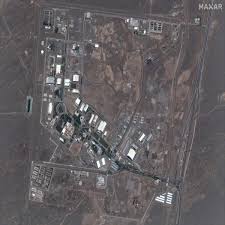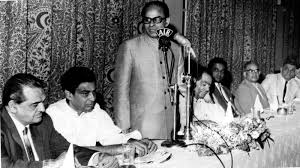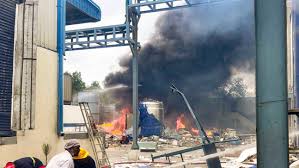‘US must rule out more strikes before new talks,’ says Iran minister amid Israel-Iran ceasefire

In a pointed message delivered amid a fragile ceasefire between Iran and Israel, Iran’s Foreign Minister, Hossein Amir-Abdollahian, has demanded that the United States categorically rule out further military strikes before any renewed nuclear negotiations can resume. This statement comes at a critical diplomatic juncture, as the region experiences a brief calm after weeks of heightened military escalation.
The ceasefire, which took effect earlier this week, follows a series of intense missile exchanges and drone attacks between Israel and Iranian-backed groups. Though the truce has held for several days, both sides remain on high alert, and any misstep could plunge the region back into violence. Amir-Abdollahian’s comments underscore Iran’s deep mistrust of Washington’s intentions and signal a hardening stance toward renewed talks.
A Fragile Ceasefire Holds
The Israel-Iran conflict has widened in scope over recent months, drawing in multiple proxy actors from Lebanon, Syria, and Iraq. The latest flare-up began after an Israeli airstrike on a high-ranking Iranian commander in Damascus, which Tehran responded to with missile launches targeting Israeli military bases. Several nations, including Qatar, Switzerland, and Oman, facilitated behind-the-scenes diplomacy to broker the current ceasefire.
Despite the truce, tensions remain. Israel has warned it retains the right to take “preemptive defensive action,” especially if it believes Iran is supplying weapons to Hezbollah or other militant groups. Meanwhile, Iranian officials insist that any future violation of their territorial sovereignty would be met with “swift and direct consequences.”
Iran Sets Conditions for Talks
Speaking at a press conference in Tehran, Amir-Abdollahian reiterated Iran’s willingness to return to nuclear negotiations—but only under clear terms.
“We are not against diplomacy. But diplomacy cannot proceed while American drones hover in our skies and missiles strike our allies,” he said. “Before we can talk about a return to the negotiating table, Washington must commit to halting its military provocations in the region.”
This demand is part of a broader strategy by Iran to reposition itself in the wake of collapsing nuclear talks that have stalled since 2023. Tehran has steadily expanded its uranium enrichment and deepened ties with Russia and China, while accusing the U.S. of acting in bad faith.
Washington’s Calculated Silence
While U.S. officials have refrained from direct military intervention against Iran, they have supported Israel diplomatically and provided intelligence coordination. The Biden administration has also imposed targeted sanctions on Iranian drone and missile programs, citing regional destabilization.
So far, the White House has not issued a formal response to Amir-Abdollahian’s remarks. However, a State Department spokesperson told reporters on background that the U.S. “remains committed to preventing Iran from acquiring nuclear weapons and will respond proportionately to regional threats.”
Analysts believe the Biden administration is walking a tightrope. On one hand, it wants to prevent further escalation that could disrupt oil markets and invite regional war. On the other, backing away too visibly from Israel could damage ties with a key Middle East ally ahead of the U.S. presidential election season.
Regional Powers Watch Closely
The geopolitical implications of the Israel-Iran truce—and Iran’s conditions for talks—are being closely watched by countries across the region. Saudi Arabia, which recently restored diplomatic ties with Iran after years of tension, is reportedly urging both Washington and Tehran to de-escalate. Riyadh is concerned that another war involving Iran could spill over into the Gulf and threaten its Vision 2030 economic transformation agenda.
Turkey has also called for restraint, with President Recep Tayyip Erdoğan stating, “The Middle East cannot afford another prolonged war. Dialogue is the only solution.”
Meanwhile, European nations are re-engaging diplomatically, with French President Emmanuel Macron and German Chancellor Olaf Scholz urging both parties to return to the framework of the 2015 Joint Comprehensive Plan of Action (JCPOA), better known as the Iran nuclear deal.
Public Sentiment in Iran
Inside Iran, the situation is tense but calm. The Iranian public, fatigued by economic hardships and international isolation, is watching developments with cautious hope. Many citizens support a diplomatic solution but remain skeptical of both U.S. promises and domestic leadership. Street interviews aired on state television reveal mixed emotions—some see the ceasefire as a chance for peace, while others fear betrayal or renewed conflict.
A university professor in Tehran, who asked not to be named, told a local news agency:
“People want peace, but not at the cost of national dignity. The government is right to demand guarantees. We’ve been here before, and trust has been broken.”
What Comes Next?
With global eyes fixed on the region, the next few weeks will be critical. Iran’s insistence on a U.S. pledge to avoid future strikes adds a new layer of complexity to already-stalled diplomacy. Whether Washington is willing to offer such assurances—either publicly or through backchannel diplomacy—remains to be seen.
For now, the ceasefire continues to hold, offering a narrow window for diplomacy. But as history has shown in the Middle East, even short lulls in violence can be deceptive.
Unless carefully managed, the path from truce to talks could instead lead back to conflict.






